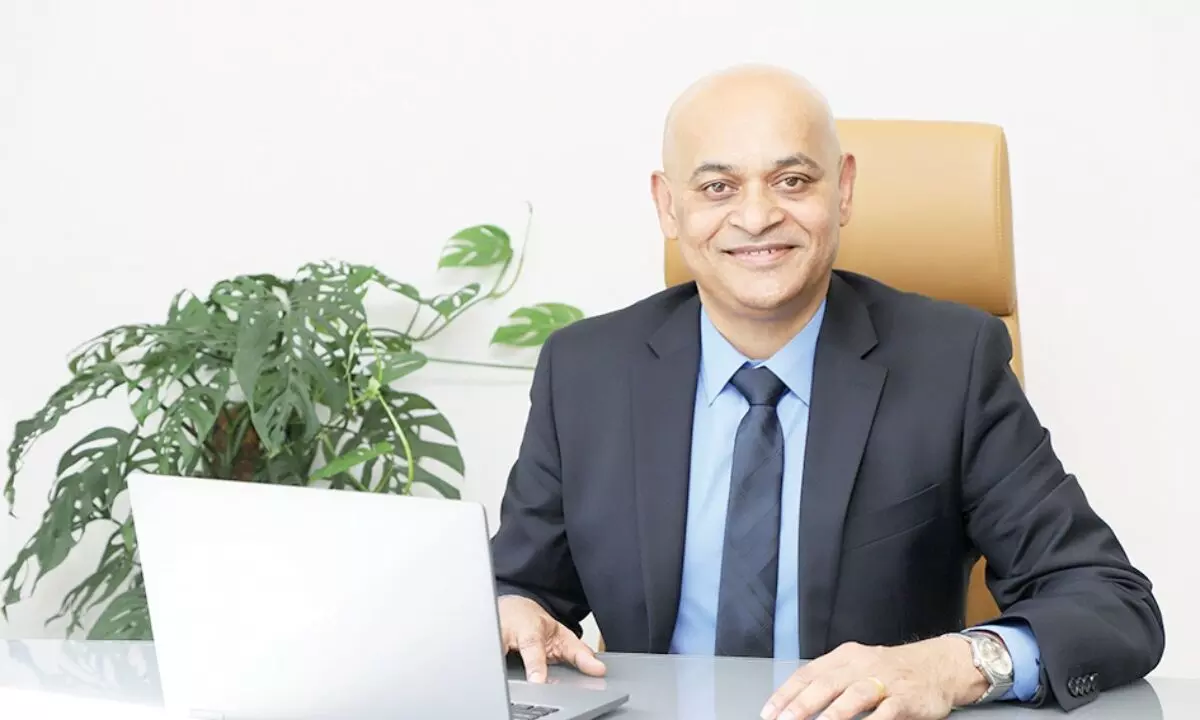Though there is intense competition in Rs 30 lakh- Rs 90 lakh housing category, the company is witnessing sound response from buyers given its value proposition
Provident Housing from the stable of Puravankara Group is hopeful of achieving sound growth in the mass housing segment (houses in the range of Rs 30 lakh- Rs 90 lakh category) given its new launches and value offerings. In a conversation with the Bizz Buzz, Mallanna Sasalu, Chief Operating Officer, Provident Housing Ltd, said though there is intense competition in this category, the company is witnessing sound response from buyers given its value proposition. He said that the company is focussed on leveraging innovative methods like modular housing models and installation of solar panels to provide customers value for their money. The company, which has its own P&L account within the group, said all its new projects have achieved financial closure. The company is launching more than 5 million sq ft of projects in the current financial year and its pipeline remains robust for the next two years. He said the management is focussed on improving the brand recall of Provident Housing in the mid-housing segment
Will you give an overview of Provident Housing’s journey so far? How are you positioning the brand given the intense competition in the mass housing category?
Puravankara is 47-year old real estate group. In 2006-07, our chairman envisioned the ‘housing for all’ concept. That’s how Provident came in and we are the first one to come up with the concept of affordable housing. With that, we launched a project in Doddaballapura. We sold all the apartments in one and half year and the project was a big success. Because of that success, we launched many numbers of large projects. We launched a project in Mysore that has 5,900 units, another 2,200 units project in Whitefield area of Bengaluru. We started to become a community developer with our apartments selling in the range of Rs 30 lakh-Rs 40 lakh.
In 2013-24, the central government came up with the plan of affordable housing under the housing for all plan. They included EWS (economically weaker section) and LIG (lower income group) under affordable housing. It started to look like poor man’s house. Then, we decided to change our (brand) positioning. We are a mass housing player, which means our economies of scale must provide value to people. If we are doing 5,000 units of apartments, then the economies of scale should be transferred to customers. Our thinking is community-oriented as we seek to provide more value to the buyers. Through this, the transformation started. After we start delivering projects in this category, many listed real estate firms have also entered this space.
If you look at the category of Rs 30 lakh- Rs 90 lakh range of housing, 60-65 per cent of the total stock is sold in this category. As we operate in this category under the Puravankara brand, which has offerings in the higher price range, we are going to be even more focussed on the housing coming in this price range. In this category, cost consciousness plays a big role. And optimum cost structure can only be achieved by leveraging the modular building methods and design. Another factor that drives cost structure is the number of apartments we build in a project. We deliver large projects where economies of scale come into play.
There are many players now operating in this space. What is your unique selling proposition given the competition? Can you throw some light on the key differentiators?
Yes, there are many key differentiators that make Provident brand to be unique. Apart from modular design and building methods, we make sure that many new things are inculcated that help in providing value to customers. For instance, in one of our projects, we are installing solar panels and solar water heaters. This helps customers in saving costs as they don’t have use water heaters. So, there are many ways in which we are creating value for customers.
Can you say that brand positioning is completed now as far as whole argument of affordable housing versus mass housing builder is concerned?
Yes, that is complete. We are a mass housing and community builder under which we provide the highest value to customers for their money.
Your parent entity, Puravankara runs several brands under the same roof. Can you give us a sense who holds the landbank for different entities and how do you arrive at a decision to allocate land parcels to different units?
Under our parent entity, different brands are operating. However, the land bank is held by the parent entity and it is decided within the leadership team of different units that which land parcel suit which subsidiary the best. The rule is simple. We want to give maximum value to our customers. So, if the value maximisation is highest for Puravanakara (mid to high value housing) or Purva Land (plotted development subsidiary), the land parcel is allocated to them. If the value maximisation is the highest by Provident Housing, it is allocated to Provident. These are decided internally by the leadership team. Monetisation is the other aspect we look at the time of deciding the allocation.
Do you have any RoI (return on investment) in mind at the time of investing in a project? Can you throw some light on this aspect?
Return on investment is an aspect which depends on many things like location, whether it is a joint development project or not, number of apartments in a project, and other related factors. But we look at optimum monetisation opportunities with regard to every project that provides the maximum value to the customers.
Provident has its own profit and loss account. Do you need any kind of equity or debt support from the group to fund your expansion plans?
Yes, Provident is a fully owned subsidiary of Puravankara Group and we drive our own P&L. We also have our own board. As an entity, we take care of our financials and have separate financial arrangements with financial institutions. We may need support of the group as guarantor but we have independent financial relationship with banks, NBFCs and other institutions.
Then the obvious transition looks like listing of Provident Housing in coming years. What are your thoughts on this matter? What kind of project development plan do you have for this fiscal year (FY23)?
That is too premature to discuss that, I will say. For now, we are focussed on our growth plans. This year, we are launching 5.3 million sq ft of projects across three cities- Bengaluru, Chennai and Kochi. Apart from that many large projects are going on, which will be launched. For the next two years, I see a robust launch pipeline and sound growth. After that, we will decide on the next course of action.
Will you raise funds in the current financial year to fund your growth plans?
For all our projects, we have already achieved financial closure. So, all funds are in place for our ongoing projects. But we continue the evaluation process and continue to speak to our partners. We want to establish Provident as a brand to reckon within the Rs 30 lakh-Rs 90 lakh category as there is intense competition in this category. We have already established it as a brand and we want to further increase our brand recall.
Source: BizzBuzz

